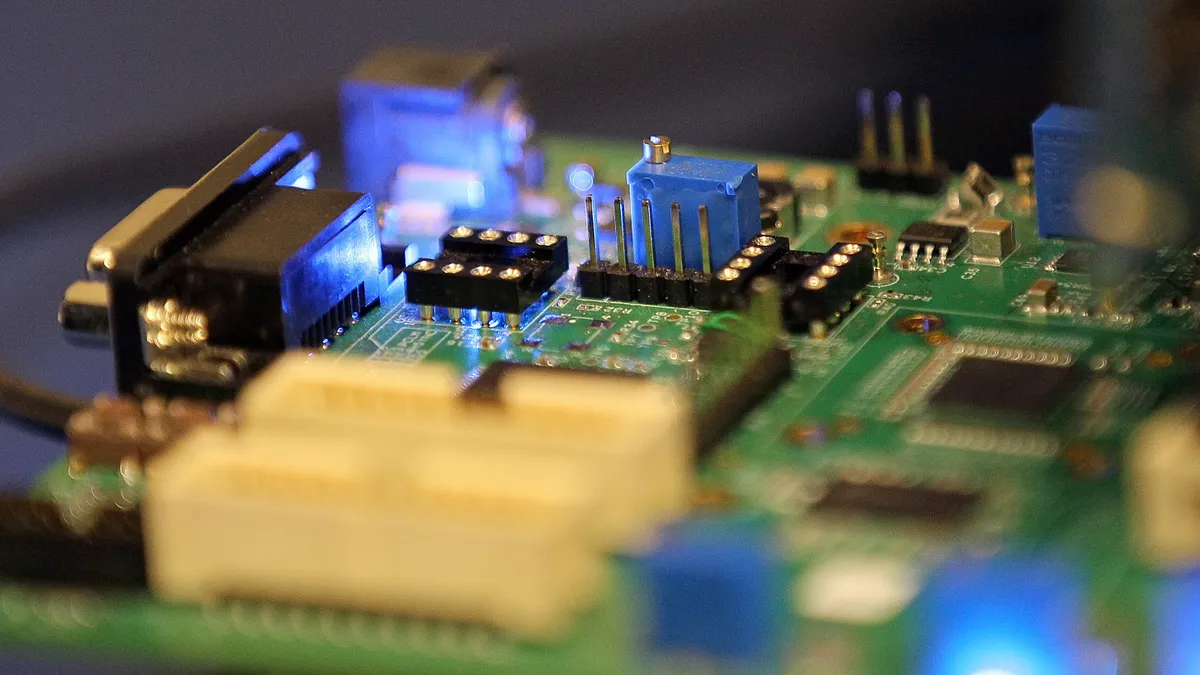Dive Brief:
- Micron Technologies broke ground last week on an Idaho memory fabrication plant, part of its plan to boost domestic chip production, the company said in an announcement.
- The facility will be the first new memory chip production facility built in the U.S. in 20 years, according to Micron. The company plans to invest $15 million in advanced memory production in Boise, Idaho, through the end of 2030.
- Construction on the facility is slated to begin next year, with production to start in 2025 and scale up over the second half of the decade.
Dive Insight:
The Idaho facility is part of Micron’s plan, announced last month, to invest $40 billion in advanced memory chip manufacturing in the U.S. through the end of the decade — contingent upon federal funding from the CHIPS and Sciences Act.
The Boise facility is the first of Micron’s investments in domestic production capacity following the passage of the CHIPS Act, and the company is currently in the final stages of selecting another high-volume manufacturing site.
Funding available through the bill has also enabled other chipmakers such as Intel and GlobalFoundries to start executing expansion plans. Intel broke ground earlier this month on its $20 billion semiconductor manufacturing site in Ohio, and GlobalFoundries will expand its New York production site.
“The investment, made possible by the anticipated grants and credits provided by the CHIPS and Science Act, also enhances Micron’s supply chain resilience and will establish a new strategic capability in the U.S.,” Micron President and CEO Sanjay Mehrotra said in a statement.
Micron said it plans to make 40% of its dynamic random access memory chips in the U.S. over the next decade. The new facility will share space with Micron’s R&D center, which the company said will accelerate memory chip production by simplifying technology deployment and reducing time to market.
The chipmaker is pushing ahead with expansion even as executives noted during a Q3 earnings call that demand had weakened among consumer segments, impacted by the war in Ukraine and inflation. The company expects demand will continue to be slow in Q4.
And Micron is not the only global memory chipmaker expanding with a long-term view. South Korea-based SK Hynix said last week it will accelerate the build of another memory fab at its Cheongju, South Korea site to prepare for future demand.
“Companies like Micron are promising examples of how we can build strong domestic supply chains for critical technology necessary to reach the President’s goal of a clean energy economy powered by American workers,” U.S. Secretary of Energy Jennifer M. Granholm said in a statement.














